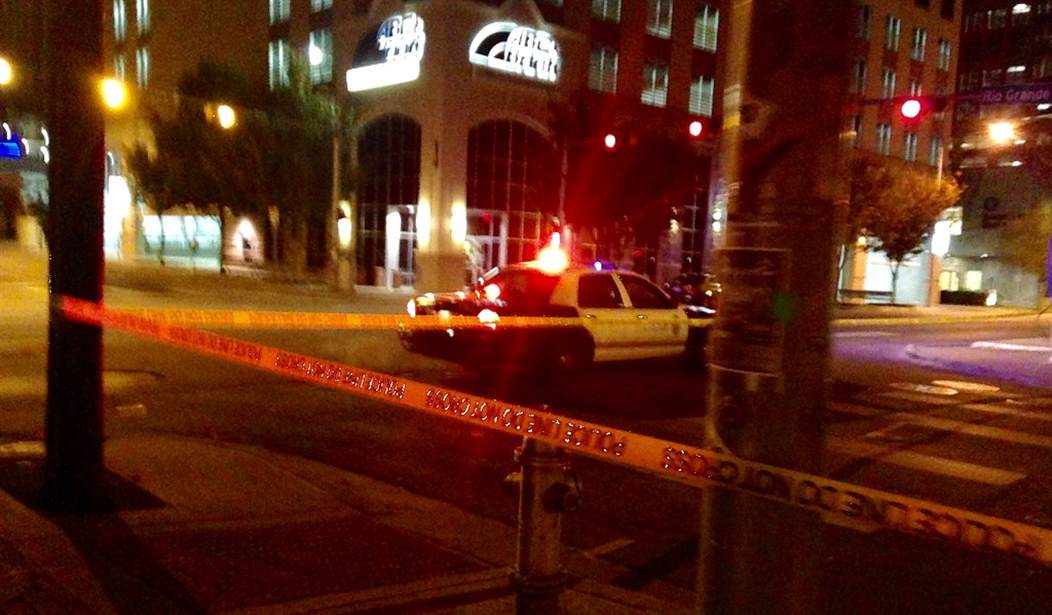A California man charged with being a felon in possession of a firearm was the subject of an illegal stop and pat-down, according to a unanimous opinion issued by a state appellate court this week. The First District Court of Appeal ruled that police had no cause to stop and search Juan Pantoja in January of 2020 after Vacaville, California police officer Chris Hill pulled the man over for a broken light in the rear of his car.
Hill said he recognized Pantoja as someone who had been arrested on suspicion of gun possession years earlier, had a criminal record, and had been an “investigative lead,” though not criminally charged, in a homicide case. Pantoja refused to consent to a search of his car but was otherwise cooperative, the officer said. But he said the man’s record and his clothing made him suspicious enough to order Pantoja to step outside and submit to a pat-down, which found a revolver loaded with five bullets.
Asked by a Solano County prosecutor in court whether he had believed Pantoja was armed and dangerous, Hill replied, “There’s a good possibility or chance, yes.”
That did not persuade Superior Court Judge Stephanie Grogan Jones, who said possibilities and chances were “speculative” and did not amount to reasonable suspicion that someone is armed and dangerous. The appeals court agreed.
Writing for the three-judge panel, Justice Marla Miller noted that while Hill maintained that he believed Pantoja may have been armed and dangerous, the police report he filed at the time of the incident suggests otherwise.
In support of the motion to suppress, defense counsel argued the prosecution failed to establish “reasonable articulable facts that Mr. Pantoja was armed and presently dangerous at the time,” noting there was no evidence of contraband, no furtive or evasive movements, and defendant complied with the traffic stop. He pointed out there was no proof defendant had “any arrests by the Vacaville Police within years of this occurring” and the prosecution cited no authority that “specifically says knowledge of a . . . defendant’s history from years prior allows them to pat search at will.” Defense counsel further observed that Hill initially left defendant alone inside his car while Hill returned to his patrol car to run the record check, which suggested the officer did not actually believe defendant was armed or presently dangerous at the time of the traffic stop.
The prosecutor argued the totality of the circumstances supported Hill’s reasonable belief that defendant was armed or dangerous, citing defendant’s baggy clothing, that it was dark outside and in the car, that the stop was in a high-crime area, and that Hill knew of “defendant’s history of violence and weapons possession.”
The prosecutor’s reasoning wasn’t good enough for the justices, who pointed out existing precedent in California precludes using someone’s previous criminal history as a basis for reasonable suspicion. Miller went on to say that wearing baggy clothing or a hoodie on a chilly winter night is also not a reasonable suspicion that a crime had been committed, nor is being in a high-crime area. In other words, while Officer Hill may have had cause to stop Pantoja for a broken light on his car, there was nothing about the stop that gave the officer a justifiable reason to pat down Pantoja.
The District Attorney also argues the circumstances that the stop occurred in a high crime area and that defendant was “an investigative lead in a homicide” contributed to a reasonable suspicion defendant was armed and dangerous. But mere presence in a high crime area, by itself, does not justify a pat down search. (Medina, supra, 110 Cal.App.4th at p. 177 [weapon search not justified merely because the suspect was in a high gang area late at night].)
This principle certainly applies in this case, where it appears defendant was stopped as he pulled into his own apartment complex. And “a person’s Fourth Amendment rights cannot be lessened simply because he or she is ‘under investigation’ by the police. Just as an officer’s knowledge of a suspect’s past arrests or convictions is inadequate to furnish reasonable suspicion; so too is knowledge that a suspect is merely under investigation, which is an even more tentative, potentially innocuous step towards determining criminal activity.” (Foster, supra, 634 F.3d at p. 247.)
There was nothing in Pantoja’s behavior that night that rose to the level of “reasonable suspicion.” Instead, Pantoja was searched basically because of his previous encounters with the law and his choice of clothing that night. Even in California, which has gone to absurd lengths to pass laws that are supposed to prevent guys like Pantoja from illegally obtaining a gun, that’s a no-no, and rightfully so. It would be nice, however, if California’s legal system treated the Second Amendment with as much deference as it gives the Fourth Amendment; not for Pantoja’s sake, but for the millions of Californians who would like to exercise their Second Amendment rights to lawfully keep and bear arms without government infringement.










Join the conversation as a VIP Member